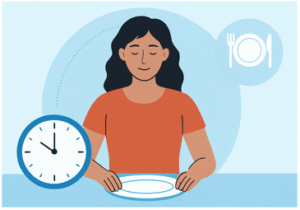Vaccines have saved millions of lives and are one of the greatest achievements in modern medicine. Yet, despite the science, many myths and misconceptions still surround them. These myths often spread fear and confusion, keeping people from protecting themselves and their families.
Let’s clear the air and separate fact from fiction by tackling some of the most common vaccine myths.
Myth 1: Vaccines Cause the Illness They’re Meant to Prevent
Truth: Vaccines contain weakened or inactive parts of a germ, or instructions to make a harmless piece of it. This helps your body build immunity without causing the actual disease. You might feel mild symptoms like a sore arm or low fever—but that’s just your immune system learning to fight.
Myth 2: Vaccines Aren’t Necessary Anymore
Truth: Just because diseases like polio or measles are rare doesn’t mean they’re gone. They’re rare because of vaccines. If people stop getting vaccinated, these diseases can—and do—make a comeback.
Myth 3: Natural Immunity Is Better Than Vaccine Immunity
Truth: Getting sick can give you immunity, but at a high cost—severe illness, hospitalization, or even death. Vaccines give you protection without the dangerous risks. It’s like learning self-defense from a coach instead of fighting a real attacker.
Myth 4: Too Many Vaccines Overwhelm the Immune System
Truth: Your immune system is far more powerful than you realize. Every day, your body fights off thousands of germs. The tiny amount of antigens in vaccines is nothing compared to what your body handles daily. Research confirms that multiple vaccines are safe, even for infants.
Myth 5: Vaccines Contain Dangerous Ingredients
Truth: Every ingredient in a vaccine has a purpose, whether it’s preserving its safety, boosting its effectiveness, or stabilizing it. The amounts are extremely small and scientifically proven safe. In fact, you often get exposed to more aluminum or formaldehyde naturally through food and the environment.
Final Thoughts
Vaccines are one of the safest, most effective tools we have to prevent deadly diseases. While myths can spread quickly, science consistently shows that vaccines protect not only individuals but entire communities.
By choosing to vaccinate, you’re not just protecting yourself—you’re helping protect the most vulnerable among us.




